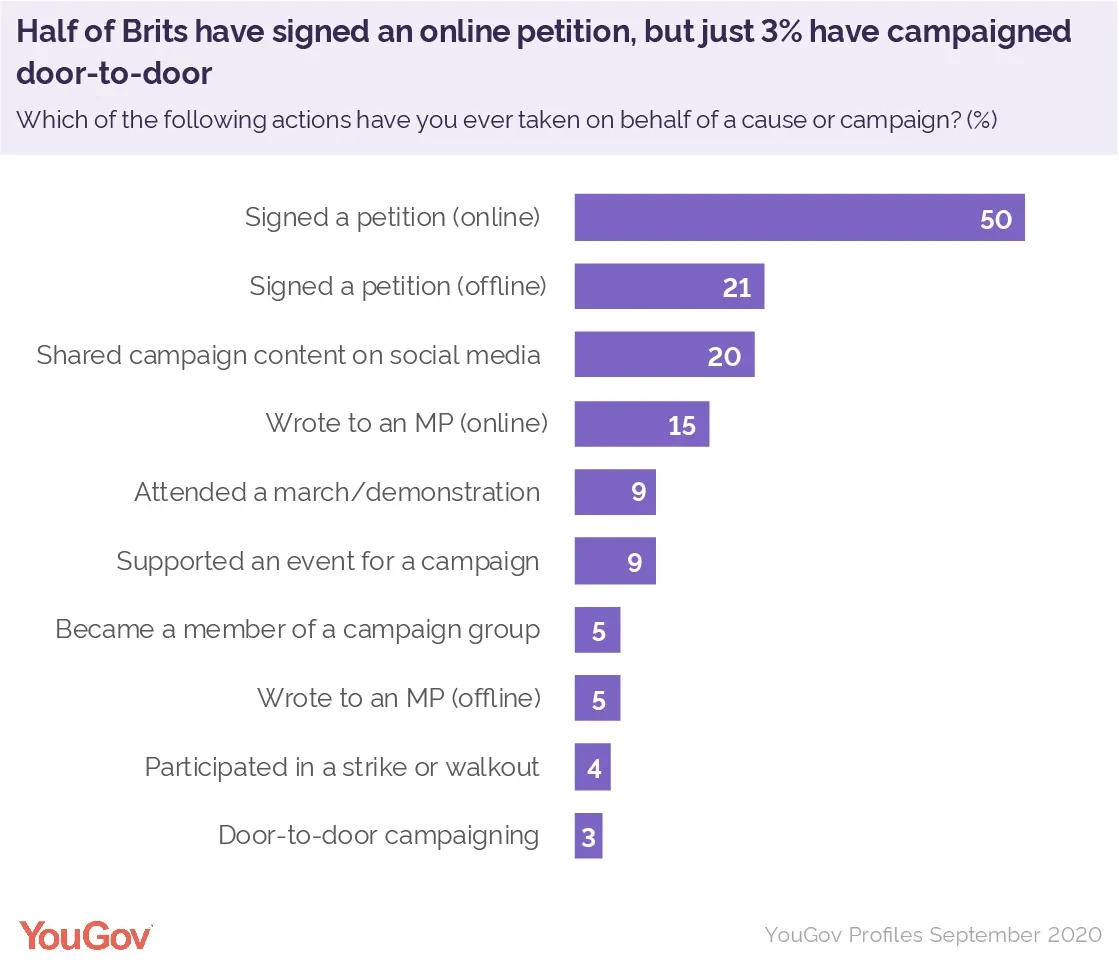YouGov Profiles data highlights an activist group’s behaviours and preferences
What would you be willing to do for a cause you believe in? A new study of YouGov data proves the old adage that “charity begins at home”, with the most popular activities undertaken generally being sedentary. Half (50%) of the public have signed an online petition, a fifth (20%) have shared content on social media, 15% have emailed their MP, and 5% have written them a letter. But what about the more active Brits?
Just one in ten (9%) have attended a march or demonstration, 5% have joined a campaign group, and 4% have participated in a strike or walkout. A mere 3% of Brits have gone door-to-door campaigning. So who are these door-knocking do-gooders?

Taking a closer look at the demographic makeup of this group, shows that door-to-door campaigners are much more likely to be male, with the gender split 60%/40%. Half (49%) are over the age of 55, while just one in nine (11%) are aged 18-24. Two-thirds (66%) are in the middle-class ABC1 social grades (compared to 55% of all Britons), with 37% belonging to the AB category (versus 26% of the public).
Beyond door-to-door campaigning, this group are more likely than your average Brit to engage in other charitable activities. Three in five (58%) make a regular charitable donation compared to 37% of the public, over half (53%) have participated in a fundraising event such as a cake sale, and two-fifths (40%) are members of a charitable organisation next to just 15% of all Britons. This group are also significantly more likely to have donated to an emergency appeal (48% vs. 15% of the public).
The door-knockers’ desire to help may be partially motivated by the fact that they are far more likely to have benefited from a charity themselves: a quarter of door-to-door campaigners (24%) have accessed charitable services compared to just one in ten (9%) of Brits overall.










